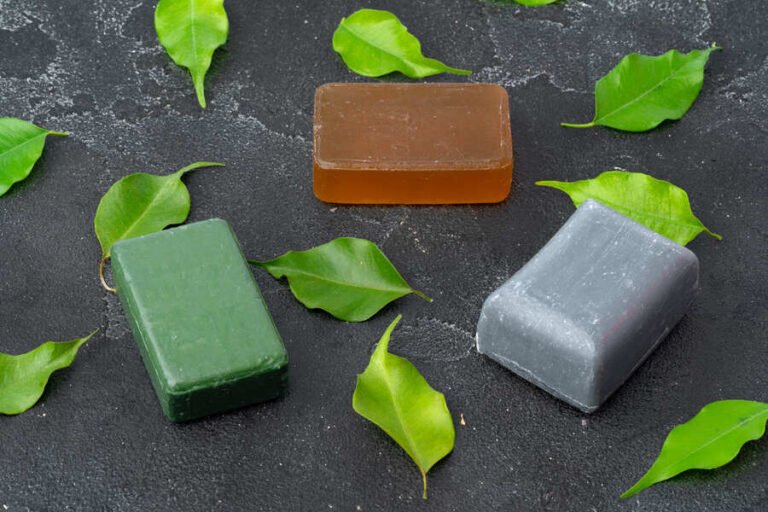Vitamin C serums have emerged as a popular skincare solution, delivering a multitude of benefits for the skin.
However, it is imperative to be knowledgeable about the potential side effects that may arise from their usage.
This article aims to provide a comprehensive overview of these side effects, allowing individuals to make informed decisions about incorporating Vitamin C serums into their skincare regimen.
By understanding the risks and precautions associated with these serums, individuals can safeguard the health and vitality of their skin.
Key Takeaways
- Vitamin C serums have few and mild side effects, including skin irritation, reactions with other skincare ingredients, and instability.
- Skin irritation may occur, especially for those with sensitive skin or allergies, but mild irritation is expected initially as the skin adjusts to Vitamin C.
- It is important to be cautious when using Vitamin C serums and discontinue use if severe or immediate irritation occurs.
- Vitamin C can react negatively with certain skincare ingredients, such as Retinol and chemical exfoliators, reducing its potency. Careful consideration of ingredient compatibility is necessary.
Skin Irritation and Sensitivity
Skin irritation and sensitivity can occur when using Vitamin C serums, particularly in individuals with sensitive skin or allergies. While Vitamin C is generally well-tolerated, it may cause mild irritation such as itchiness, tightness, or redness. It is important to note that if irritation is severe and immediate, discontinuing use is advised.
However, mild irritation is expected initially as the skin adjusts to the Vitamin C serum. To minimize the risk of irritation, safety precautions should be taken. This includes conducting a patch test before applying the serum to the entire face and adjusting the dosage or frequency of use if necessary. It is also crucial to follow the recommended usage instructions provided by the manufacturer.
Potential Allergic Reactions
Notably, individuals can experience potential allergic reactions when using Vitamin C serums, so it is crucial to be aware of these risks. Allergic reactions occur when the immune system mistakenly identifies a substance, in this case, Vitamin C, as harmful and triggers an allergic response.
Symptoms of an allergic reaction may include itching, redness, swelling, or a rash on the skin. In severe cases, individuals may experience difficulty breathing or a swollen throat, which requires immediate medical attention.
It is important to note that allergic reactions to Vitamin C serums are rare but can occur, particularly in individuals with a history of allergies or sensitive skin. If any allergic reactions occur, it is recommended to discontinue the use of the serum and consult with a healthcare professional.
Incompatibility With Other Skincare Ingredients
Interaction with other skincare ingredients can affect the efficacy of Vitamin C serums. It is important to be aware of the potential incompatibility of Vitamin C with certain ingredients to ensure optimal results. Here are some precautions to consider:
- Interactions with retinol: Vitamin C and retinol are both powerful ingredients that can provide numerous benefits to the skin. However, using them together may lead to skin irritation and reduced effectiveness. To avoid this, it is recommended to space out the use of Vitamin C and retinol products.
- Precautions for chemical exfoliators: Chemical exfoliators, such as AHAs (alpha hydroxy acids) and BHAs (beta hydroxy acids), can enhance skin renewal and exfoliation. However, when used with Vitamin C serums, they can potentially reduce the potency of Vitamin C. It is advisable to avoid using them simultaneously.
Oxidation and Loss of Potency
While Vitamin C serums offer numerous benefits for the skin, one potential issue to be aware of is the oxidation and loss of potency that can occur over time. Vitamin C is an unstable ingredient, even in its purest form, and is susceptible to degradation when exposed to light, air, temperature, and pH changes. This oxidation process can render the serum ineffective or even harmful to the skin.
To ensure the preservation of its effectiveness, proper storage is crucial. Vitamin C serums are typically packaged in tinted bottles to protect them from sunlight. It is important to check the expiration date and appearance of the serum regularly to ensure its stability. Additionally, storing the serum in a cool, dry place away from direct sunlight can help maintain its potency.
Sun Sensitivity and Photodamage
Sun sensitivity is a potential side effect of using Vitamin C serums that can lead to photodamage. It is important to understand how Vitamin C can affect the skin's response to sunlight and take necessary precautions to protect the skin. Here are some key points to consider:
- Sun sensitivity: Vitamin C can make the skin more sensitive to the sun's harmful rays.
- Increased risk of photodamage: Using Vitamin C serums without proper sun protection may lead to increased sun damage, such as sunburn, premature aging, and an increased risk of skin cancer.
- Sun protection: It is essential to incorporate sun protection measures, such as wearing sunscreen, using protective clothing, and seeking shade, when using Vitamin C serums.
- Sunscreen application: Apply a broad-spectrum sunscreen with at least SPF 30 daily, even when using Vitamin C serums indoors, to provide optimal protection against the sun's harmful UV rays.
Stinging or Tingling Sensations
Furthermore, individuals using Vitamin C serums may experience stinging or tingling sensations on their skin. While these sensations can be uncomfortable, they are generally considered normal and temporary.
Vitamin C serums contain active ingredients that can stimulate the skin, leading to a tingling or stinging sensation upon application. This is often a sign that the serum is working and penetrating the skin. However, if the stinging or tingling sensation persists or becomes unbearable, it is important to discontinue use and consult a dermatologist.
To minimize the likelihood of experiencing these sensations, it is recommended to properly cleanse and dry the skin before applying the serum. Additionally, using a moisturizer or sunscreen after application can help soothe the skin.
Discoloration or Darkening of the Skin
One potential side effect of using Vitamin C serums is the occurrence of discoloration or darkening of the skin. This can be distressing for individuals who are seeking to improve their skin tone and complexion. It is important to understand the underlying causes of this side effect and implement appropriate treatment and prevention measures.
- Discoloration treatment: If discoloration occurs after using a Vitamin C serum, it is recommended to consult a dermatologist for proper diagnosis and treatment. They may suggest topical creams or procedures to address the discoloration and restore the skin's natural tone.
- Prevention measures: To minimize the risk of discoloration, it is crucial to use a Vitamin C serum that is suitable for your skin type and quality. Always perform a patch test before applying it to your face. Additionally, ensure that you store the serum properly, away from direct sunlight and extreme temperatures, to maintain its stability and effectiveness.
Frequently Asked Questions
Can Vitamin C Serum Cause an Allergic Reaction?
Vitamin C serums can potentially cause allergic reactions in individuals with skin sensitivity. These reactions may manifest as itchiness, redness, or tightness. It is important to discontinue use if severe irritation occurs.
How Long Does It Take for the Skin to Adjust to Vitamin C Serum?
The skin adjustment timeline for vitamin C serum varies among individuals. While some may see results within a few weeks, others may take longer. It is important to note the benefits of vitamin C serum, including its anti-aging, skin brightening, and anti-inflammatory properties.
Can Vitamin C Serum Be Used in Combination With Other Skincare Ingredients?
Combining vitamin C serum with other skincare ingredients should be done with caution. Retinol should be spaced out, and chemical exfoliators like AHAs and BHAs should not be used concurrently, as they may reduce the potency of vitamin C.
What Are the Signs of Vitamin C Serum Oxidation?
Signs of vitamin C serum oxidation include a change in color, a foul odor, and a decrease in efficacy. To prevent oxidation, store the serum in a cool, dark place and ensure the bottle is tightly sealed.
Does Vitamin C Serum Make the Skin More Sensitive to the Sun?
Vitamin C serum does not make the skin more sensitive to the sun. In fact, it can enhance sun protection by neutralizing free radicals and reducing oxidative stress. However, it should still be used in conjunction with sunscreen for optimal sun protection.
Conclusion
In conclusion, while Vitamin C serums offer numerous benefits for the skin, it is important to be aware of the potential side effects that may arise from their use. Skin irritation, allergic reactions, and incompatibility with other skincare ingredients are common concerns.
Proper storage and handling are crucial to maintain the potency of Vitamin C. Additionally, individuals should be mindful of sun sensitivity and the possibility of stinging or tingling sensations.
By being informed and cautious, one can make informed decisions about using Vitamin C serums and ensure the health of their skin.







